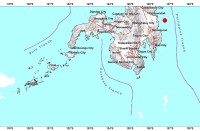The bodies of seven loggers who were beheaded by members of the Abu Sayyaf Group have been found in Basilan.
Local police chief John Cundo told AFP Nestor Divinagracia, 50; his son Ily, 25; Berto Lacastesantos, 48; Hernando Sally, 53; Renato Casiple Jr., 36; Rene Sanson, 28; and Mamerto Falcasantos, 55; who were abducted last July 20 at Lower Mahayahay, Maluso town, were found over the weekend in a mountainous village, in Barangay Switch Yakal, Lantawan.
The group of senior Abu Sayyaf leader Furuji Indama had abducted and killed the loggers apparently over a local business row rather than for its typical ransom activities, Cundo said.
“This was an act of revenge by Indama who may have blamed the destruction of his rubber plantation on these loggers. The kidnappers did not demand ransom but immediately beheaded the loggers,” Cundo said.
The Abu Sayyaf is a loose network of militants formed in the 1990s with seed money from Osama bin Laden’s Al-Qaeda network.
One faction based on Basilan has pledged allegiance to the Islamic State group, with members among militants who have been occupying parts of Marawi since May.
Government security forces are fighting those militants, who have withstood a United States-backed military offensive in the war-torn that has claimed 650 lives and displaced nearly 400,000 people.
But security forces said they would be defeated in a matter of time.
President Rodrigo Duterte has imposed martial law across Mindanao, including Basilan, to quell the militant threat.
The Abu Sayyaf, blamed for the worst terror attacks in the nation’s history, is known to behead its hostages unless ransom payments are made.
The militants beheaded two Canadian hostages last year and a German captive in February after ransom demands were not met.
Abu Sayyaf militants are holding more than 20 hostages, including several foreigners, in Basilan and another of their bases on the southern island of Sulu, according to the military. (Agence France Presse)







